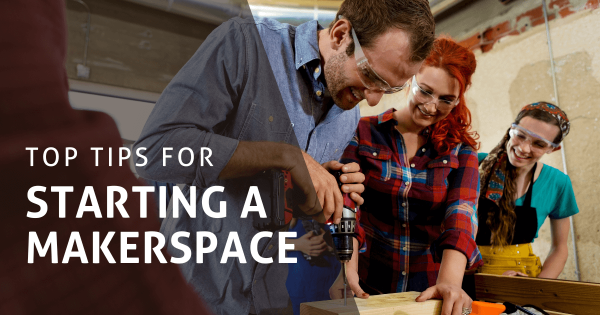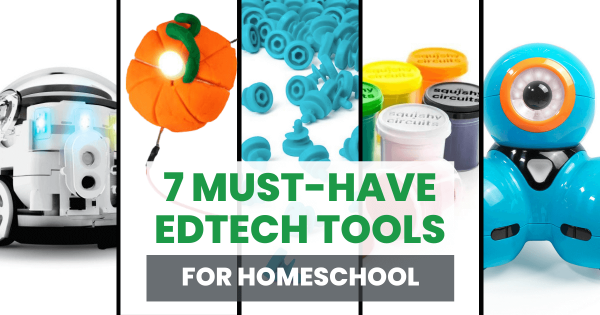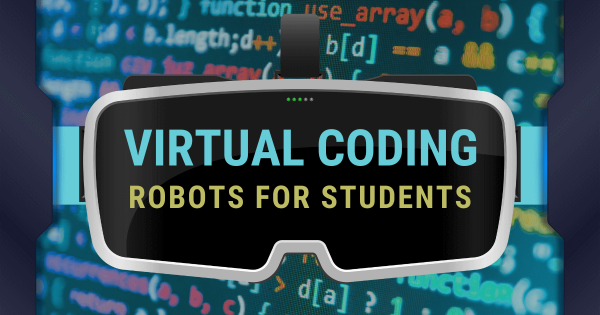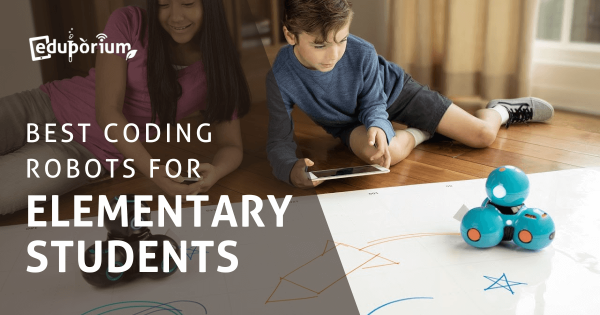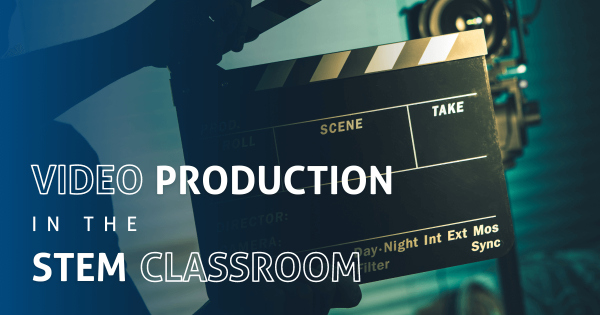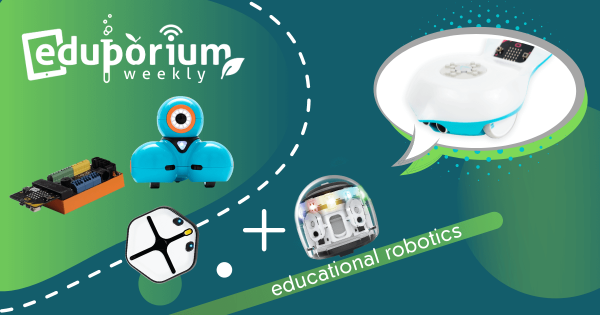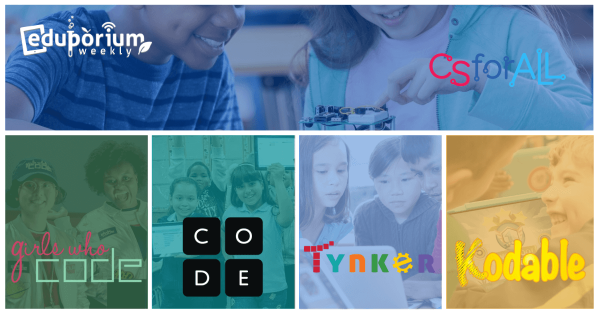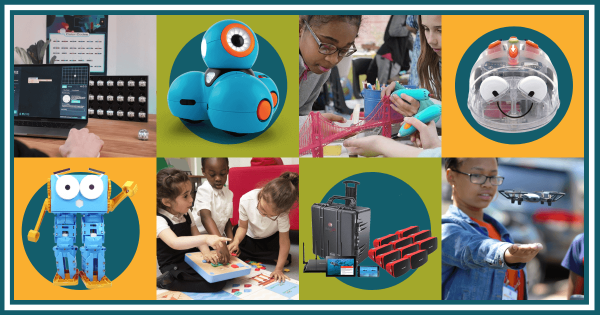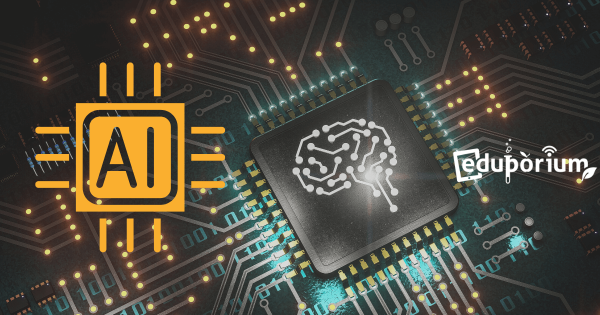One of the best things about school makerspaces is that so many different events can foster productive learning experiences. Since maker learning is so closely connected to 21st century development, MakerEd activities and exploration remain popular with both students and teachers. So, if you are looking to start a makerspace in your school, what are key things to know?
Eduporium Weekly
Our longest running current blog series, the Eduporium Weekly is your source for relevant education topics. Whether it's related to EdTech, STEM, SEL, makerspaces, soft skills, equity, CTE, or any number of other things, you are sure to find some relevant content here. Our team remains committed to providing intriguing and up-to-date opinions and perspectives on the most important topics—whether they're technology-based or not. Every week, we share our thoughts about those key topics in education. Giving educators a Saturday morning read, many of our Eduporium Weekly posts reflect recent happenings, important updates, or, sometimes, some fun revelations. We're also very fortunate to serve a community of such committed educators. For that reason, we strive to keep our thoughts and content fresh. And, this section of our blog is a great place to go for just that.
Whatever is happening in education, we believe our committed team members help educators adjust. As we've seen, technology has a place in all types of learning—as long as educators integrate it strategically. As debates and discussions in STEAM and general education evolve, we adapt this content to continually educate, inform, and entertain. Our perspective may be a bit unique but our collective expertise on these topics is always improving. We also encourage you to browse the pages or search for a topic of your interest on the left of your screen. We certainly take pride in being up to date with what teachers are experiencing. From our entire team, we hope this content truly provides you with guidance and inspiration. Check back every weekend, as well, for the latest edition of the Eduporium Weekly.
-
7 Must-Have EdTech Tools For Homeschool
For homeschooling parents, EdTech may seem out of reach. Whether it’s too expensive or too complex, some of the most popular EdTech isn’t suited for homeschoolers. However, we’ve compiled a list of the best EdTech tools that work perfectly in a home classroom. These solutions are affordable and approachable, with curriculum that parents can easily integrate. -
Eduporium Weekly | Top Virtual Coding Robots For Students
Many robotics tools also have virtual options, which help allow students to continue learning and programming while they’re at home or perhaps after school. In fact, many of those platforms often help improve accessibility of technology by removing the need for a physical robot, increasing equity in multiple ways. So, read on for our recommendations for virtual CS tools. -
Eduporium Weekly | Best Coding Robots For Elementary Students
There are so many classroom robots that teachers could access and share with students—even those in the elementary grades. Whether they’ve tried coding in kindergarten or they’re just getting started, these are some of the top elementary robotics kits to consider for your classroom. From the Dash Robot to the Finch 2.0 and the Marty V2, here’s why we like -
Eduporium Weekly | How To Handle Teacher Burnout
Providing our teachers support involves different approaches for different situations. As teachers face novel challenges from in-person learning, new technologies, and more, it is essential to give them the tangible help they need to thrive. Self-care, social-emotional strategies, collaboration, and material resources can all help to alleviate teacher burnout. -
How To Bring Video Production Into The STEM Classroom
Recent issues with student attention have inspired teachers to incorporate more audiovisual elements, like podcasts and videos, into the classroom. Research shows that interacting with videos in class improves students’ engagement and retention of STEM content, as well as increasing class satisfaction. Look inside for tips on using video elements in the classroom. -
Eduporium Weekly | The Best Features Of Educational Robots
The benefits of using robotics kits in education are far-reaching in both the short and long term. Of course, using robotics tools helps kids learn some of the most important coding concepts with methods kids can more easily understand. Now, robotics experiences are inclusive of almost all students and features of classroom robots more effectively meet everyone’s needs. -
Eduporium Weekly | 5 Amazing STEM And Coding Organizations
As educators in the 21st century, today’s school leaders are always looking for some help and we realize that. We try to provide teachers with as much support as possible throughout each phase of this EdTech acquisition. We are not the only ones, however, in the business of trying to make that tech acquisition and deployment process easier for educators -
Eduporium Weekly | The EdTech Purchase Process
The EdTech purchasing process should be enjoyable, informative, stress-free, and as affordable as possible. Our team specializes in helping make all of these things happen by offering a one-stop online STEM store, free consultation, and a hassle-free quoting process to make your purchases as smooth as we can by helping educators identify key focal points. -
Eduporium Weekly | Questions About AI In Education
The term artificial intelligence typically refers to the computer systems that are capable of efficiently completing tasks that should normally require the use of human intelligence. As educational leaders continue exploring some of the various avenues—popular or not—of bringing it into classrooms, the hope is that it extends educator efficiency and helps student achievement.




